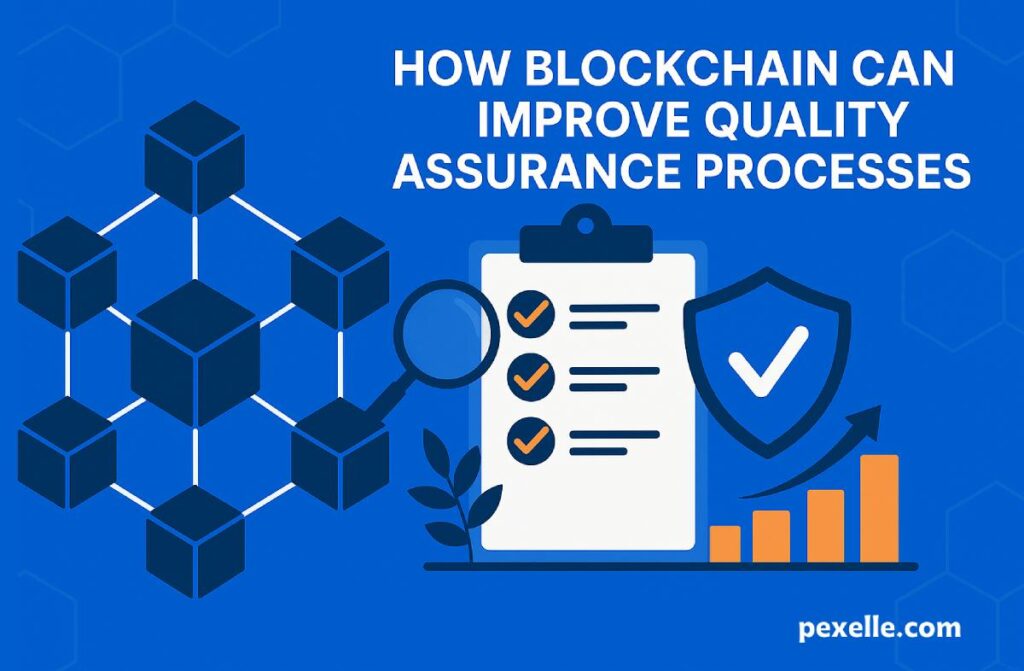How Blockchain Can Improve Quality Assurance Processes

In an increasingly global and complex supply chain environment, maintaining high standards of quality assurance (QA) is more critical than ever. From manufacturing and pharmaceuticals to food production and software development, QA ensures that products and services meet required standards before reaching consumers. However, traditional QA systems often suffer from issues like lack of transparency, manual errors, and data tampering. Enter blockchain — a decentralized, tamper-resistant technology — which offers the potential to revolutionize how quality assurance is managed across industries.
Understanding the Challenges in Traditional QA Systems
Quality assurance is fundamentally about tracking, verifying, and ensuring consistency in processes and outputs. Yet, most current QA frameworks rely heavily on centralized systems that are prone to human error, opaque record-keeping, and delayed communication across supply chain nodes. For example:
- Manual inspections are often not recorded in real-time.
- Data manipulation or loss can occur during audits or transfers.
- Lack of traceability makes it difficult to identify the origin of a defect or contamination.
- Compliance verifications with regulations are slow and inefficient.
These issues can lead to product recalls, reputational damage, legal liability, and ultimately, a loss of consumer trust.
Blockchain as a Trust Layer in QA
Blockchain introduces a decentralized ledger system where data entries are immutable, timestamped, and transparently shared among authorized participants. This framework naturally aligns with the principles of quality assurance. Here’s how blockchain addresses traditional QA shortcomings:
- Immutable Records: Once QA-related data (e.g., test results, inspection reports, certifications) is added to the blockchain, it cannot be altered or deleted without leaving a trace.
- Real-Time Traceability: Every component or batch in a supply chain can be traced back to its origin, including every QA check it underwent.
- Smart Contracts: Automated protocols on the blockchain can trigger actions — like halting production or sending alerts — if QA standards aren’t met.
- Audit Readiness: External auditors can access verified, time-stamped records without going through intermediaries or paperwork.
These attributes make blockchain particularly valuable in high-stakes sectors such as pharmaceuticals, aerospace, food safety, and regulated manufacturing.
Use Cases Across Industries
Several real-world applications already showcase blockchain’s transformative potential in quality assurance:
1. Pharmaceutical Industry
Counterfeit drugs are a major global concern. Blockchain enables end-to-end visibility into drug manufacturing and distribution, allowing stakeholders to verify the authenticity and QA status of medicines.
2. Food and Agriculture
In food production, blockchain can record temperature controls, handling procedures, and cleanliness checks at each stage. If contamination is detected, the system can trace it back to its source instantly.
3. Automotive and Aerospace
Safety-critical parts require rigorous QA. Using blockchain, manufacturers can log testing data for each part, ensuring traceability and accountability throughout the component’s lifecycle.
4. Software Development
In CI/CD (Continuous Integration/Continuous Deployment) pipelines, blockchain can log code testing outcomes, security checks, and version control, creating an immutable QA history.
Integrating Blockchain into QA Systems
While the benefits are compelling, integration requires careful planning:
- Permissioned Blockchains are often preferable for QA systems to ensure only authorized parties can write to the ledger.
- IoT Devices can be used to automatically log environmental conditions or test results to the blockchain.
- Interoperability Standards must be developed so QA data from different platforms can be unified on-chain.
- Change Management is necessary to train staff and align stakeholders on the new transparent model.
Blockchain should not be seen as a replacement for existing QA frameworks but as a foundational trust layer that enhances them.
Challenges and Considerations
Despite its promise, blockchain adoption in QA faces several hurdles:
- Scalability: Public blockchains may struggle with transaction volume if every QA action is logged in real-time.
- Data Privacy: Sensitive QA data must be encrypted or stored off-chain with hash references on-chain.
- Initial Costs: Developing and deploying blockchain solutions requires upfront investment in infrastructure and training.
- Standardization Gaps: Without standardized formats for QA data, blockchain solutions can remain siloed and incompatible.
The Future of QA in a Decentralized World
Blockchain aligns with the evolution toward “Quality by Design”, where quality is proactively built into processes rather than verified retroactively. As industries embrace Industry 4.0 technologies like AI, IoT, and digital twins, blockchain can serve as the backbone that ensures all quality-related data is trustworthy, traceable, and tamper-proof.
In a world where consumers and regulators demand more transparency and accountability, blockchain doesn’t just enhance QA — it redefines its foundation.
Source : Medium.com




